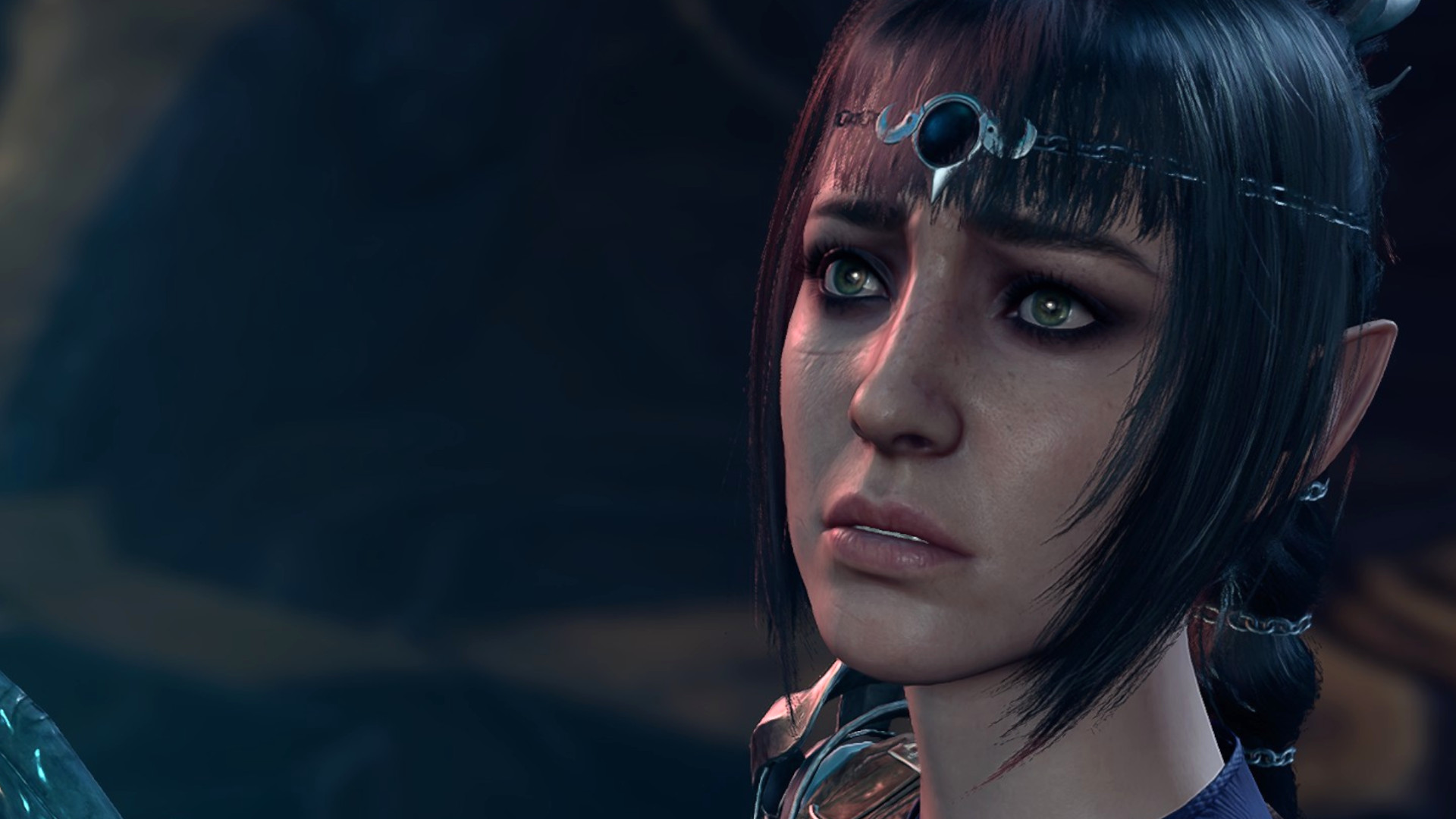I and a lot of people who like games tend to break the hobby up into “legendary years.” It’s the ones when so many games come out it’s almost impossible to keep up with them all, and in hindsight you can observe some kind of watershed moment of quality and innovation.
1998 is understandably always in these conversations—it’s almost absurd that Metal Gear Solid, Ocarina of Time, Baldur’s Gate, Half-Life, Thief: The Dark Project, and Starcraft all came out in the same year. 2004’s a big one too: Half-Life 2, Halo 2, Metal Gear Solid 3, and Vampire: The Masquerade – Bloodlines (my sweet baby) released within a few weeks of each other. I can also personally attest that 2007 was a great year to have an Xbox 360 and be allowed to play M-rated games for the first time.
It’s hard to celebrate such a stellar year for games when it was surrounded by so much misery in the games industry itself.
2023 is absolutely part of that canon now, with a deluge of amazing games from indie to triple-A level, the dam seeming to burst on all those Covid-delayed projects we’ve been hearing about for a minute. My mind’s been dominated by Baldur’s Gate 3 and Armored Core 6, each respectively one of the best RPGs and shooters I’ve ever played, but a big surprise has been how deep the bench goes this year: every genre from horror to fighting games to puzzlers to 4X has at least one heater you can really sink your teeth into.
It’s hard to celebrate such a stellar year for games when it was surrounded by so much misery in the games industry itself, though. As the year inches to a close, it’s looking like the Embracer Group will end the year with 904 employees laid off after its unprecedented two-year spending spree. Elsewhere we saw eye-watering cuts at 343 Industries, Humble Games, Codemasters, Ubisoft, Frontier Developments, and Bungie. Even Wizards of the Coast, which oversaw a banner year for Dungeons & Dragons and seems to be one of Hasbro’s few profitable brands, laid off 1,900 employees, including much of the D&D team Larian CEO Swen Vincke first met with on Baldur’s Gate 3.
The problem doesn’t seem like it will be going anywhere, either. Ever since the PlayStation 2 generation or so (I always have to check Wikipedia to remember which Nth gen that is) high-level development has increased in cost with diminishing returns for graphical and gameplay innovation. I found Kotaku‘s reporting on the business side of the massive Insomniac leak particularly sobering in this regard.
Insomniac’s Spider-Man 2 went $30 million over an initial $270 million budget, with a total investment three times what was spent on the original PS4 Spider-Man. A sustainable budget presentation in the leak asks the uncomfortable question, “Is 3x the investment in [Spider-Man 2] evident to anyone who plays the game?”
Golden Parachute
(Image credit: Epic Games)
In an earlier draft of this piece, I homed in on that question of increasing game size and development cost as something to harp on, a key contributor to this layoff apocalypse, but that just doesn’t feel right as a culprit or catch-all. The wrapped.games summary of 2023’s industry layoffs helped put it in perspective for me.
It’s unclear how many of those 1,900 layoffs at Hasbro were at Wizards of the Coast, which oversaw a banner year for Dungeons and Dragons (January’s OGL catastrophe notwithstanding), but Kotaku Australia noted that Wizards was hit particularly hard, with D&D 5th edition co-designer Mike Mearls, Magic the Gathering producer Paul Cheon, and head of publishing and licensing Liz Schuh among those impacted. Again, this came after a historic year for Dungeons & Dragons that included Baldur’s Gate 3 and the movie Honor Among Thieves which, while an underperformer at the box office, turned a profit and seems to have had a long tail on streaming services.
Epic Games’ 830 layoffs similarly feel surreal to look at given the company’s success. Fortnite remains a juggernaut, the cultural touchstone of every little cousin in the world. While the Epic Store’s abysmal UI and swathe of exclusives leave it an unwelcome insurgency on my desktop, there’s no denying that it’s making a go of it against Steam (even if Steam keeps on winning).
The slow implosion of the Embracer Group feels more like a natural disaster or some other punishment inflicted by an idiot god,
I almost hesitate to bring up the elephant in the room here: executive pay, that big juicy turkey on every corporate balance sheet. Pointing out that John Riccitiello’s $11.8 million in compensation for 2023 is a moral outrage in the face of Unity’s 1,165 laid off employees almost feels passe, like slapping a “fuck cancer” sticker on your bumper. At a certain income bracket, you just get to be insulated from the consequences of your own actions like no other person in history—we all see it, we all hate it, and yet it never seems to change.
Speaking of earthquakes, the slow implosion of the Embracer Group feels more like a natural disaster or some other punishment inflicted by an idiot god than any kind of normal business story. While CEO Lars Wingefors took home a downright ascetic (for a CEO) salary of $146,160, he (and his leadership team) went on a now-legendary spending spree during the pandemic, purchasing Gearbox, Dark Horse Comics, Eidos Montreal, and the rights to The Lord of the Rings and The Hobbit.
The conglomerate seemed poised to be the next third-party publishing giant in the industry, but in May a $2 billion deal with a gaming company owned by Saudi Arabia’s sovereign wealth fund fell through, leading to the company’s new austerity. Ultimately, storied developers like Volition and Free Radical seem to have been purchased then shut down for no real reason, with Embracer’s stock price going on a profound journey of self-discovery in the background.
What do you even do about it
(Image credit: THQ Nordic)
One bright spot on the industry side has been Larian Studios’ well-deserved success with Baldur’s Gate 3, but as Bloomberg’s Jason Schreier pointed out in August, this isn’t easily replicable. While the gaming giant Tencent has a 30% stake in the company, Larian is privately owned by Swen Vincke and his wife, with Vincke also taking on a director role in the developer’s games.
That leads to a rare consolidated control of the company and its projects independent from stock price and shareholder demands—at the risk of oversimplifying, it’s indie creative freedom at a triple-A scale. In addition to this just not being how most studios are set up, I don’t think the model itself is a guarantee of success. In addition to the singular accumulation of talent across Larian’s multiple studios, Vincke’s own leadership is a rare thing among private enterprises. I keep thinking back to Curt Schilling, 38 Studios, and Kingdoms of Amalur: The Reckoning as a sort of Black Lodge counterpart of a privately-owned, founder-driven triple-A developer. Rhode Island’s greatest cultural export was a bit of a hot mess.
And that’s something that feels so frustrating about this paradoxical year of great games and industry wide layoffs, that there might not be any lesson to take away from it. Executive compensation and relative freedom from accountability don’t exactly look like they’re going anywhere in the near future: you’ll just be able to “pull an Embracer” and experience no personal discomfort or genuine consequences as you lay off 900 people. Our hobby will remain, on some level, an accidental byproduct of keeping stock prices high.
If there’s a bright spot to be found, it’s in the continuing trend of industry unionization. Union protections are not a guarantee against layoffs like we’ve seen this year, but they are an impediment. I was particularly heartened by CD Projekt Red developers’ formation of the Polish Gamedev Workers Union in October following that studio’s laying off 9% of its staff.











